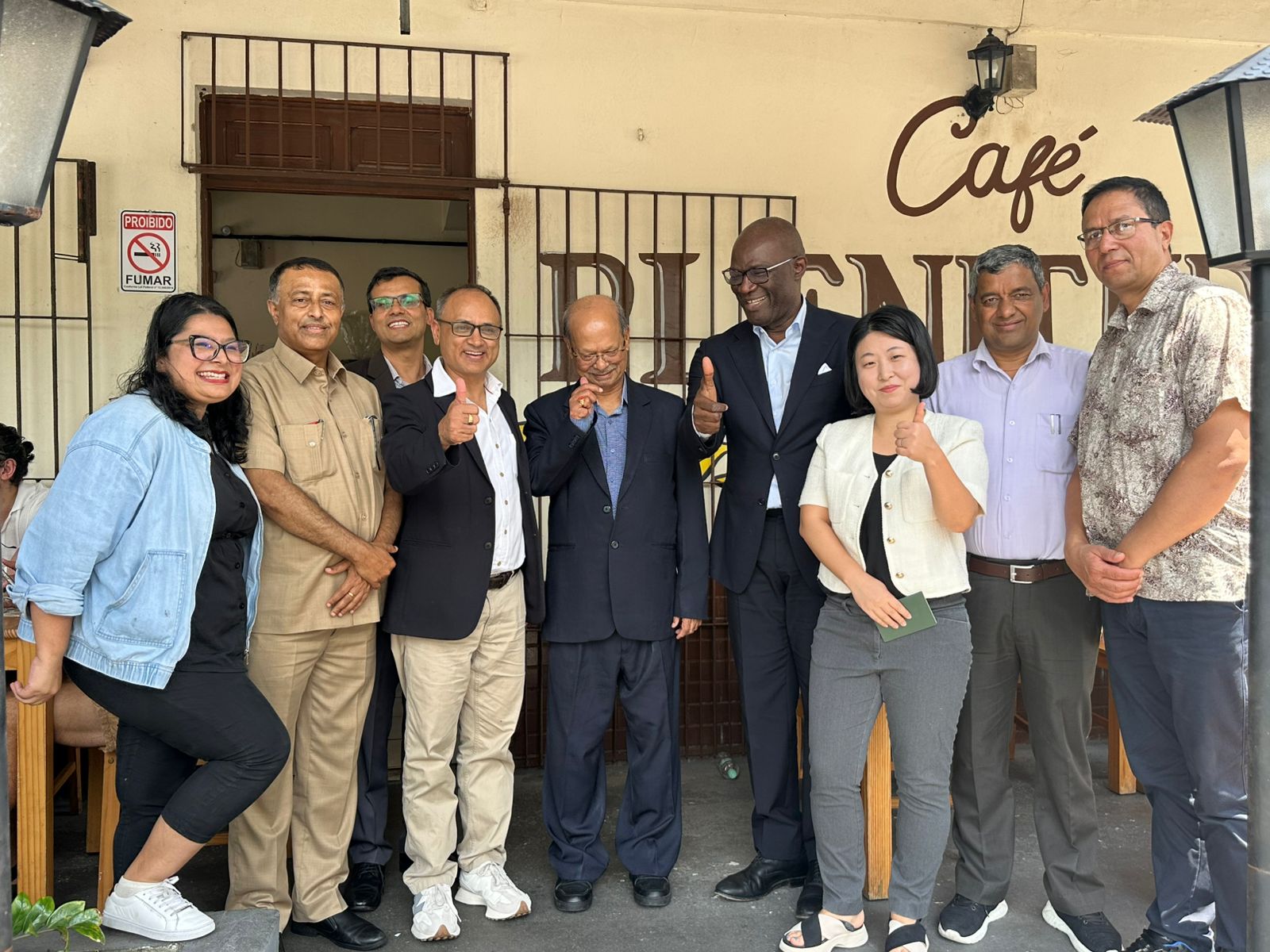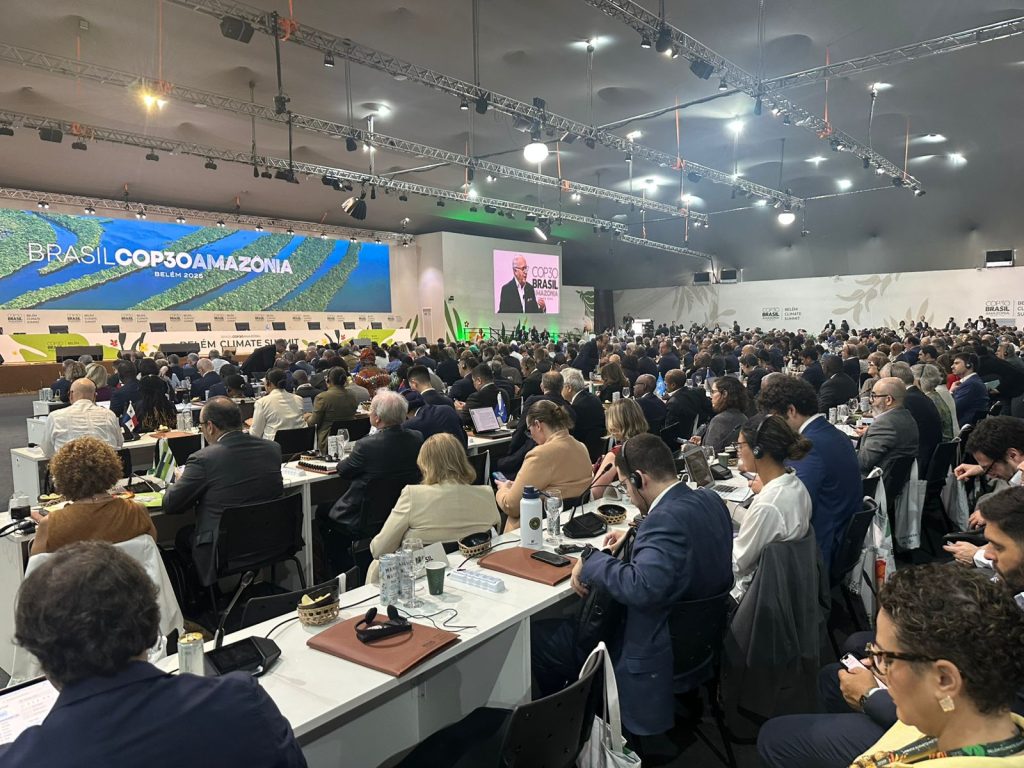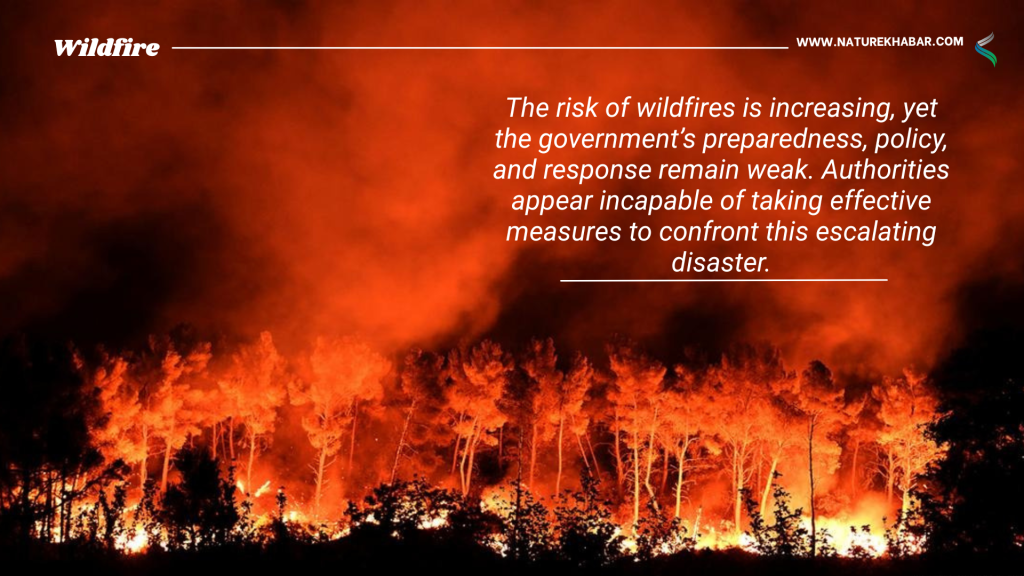Nepal Amplifies Call for Climate Justice at COP30 in Belém
- Nature Khabar

Kathmandu - On the midpoint of the 30th United Nations Climate Change Conference (COP30) in the Amazonian city of Belém, Nepal made its voice heard today as a small but determined delegation pressed the international community for urgent action on climate finance, loss and damage, and support for the world’s most vulnerable nations.
Nepal’s Minister of Agriculture and Livestock Development, Madan Prasad Pariyar, who is leading the country’s delegation, delivered Nepal’s official national statement during the high-level plenary segment this afternoon. Though the full text of the statement was not immediately released, sources close to the delegation confirmed that Minister Pariyar emphasized Nepal’s extreme vulnerability as a least-developed, land-locked, and mountainous country already living with the severe consequences of a crisis it did little to create.
“Nepal contributes negligibly to global emissions yet bears disproportionate impacts—rapidly melting Himalayan glaciers, glacial lake outburst floods, landslides, and shifting monsoon patterns that threaten our agriculture and livelihoods,” Dr Maheshwor Dhakal, chief of climate change management division told to the reporters, echoing themes Nepal has consistently raised at past COPs.
Throughout the conference, Nepal has focused on nine priority agendas it prepared in the lead-up to Belém, including stronger operationalization of the Loss and Damage Fund, a global stocktake of past climate commitments, and increased grant-based adaptation finance for mountain and least-developed countries.
Nepal co-hosted or participated in several side events that showcased its domestic ambition: A dedicated session on Nepal’s third Nationally Determined Contribution (NDC 3.0), highlighting the country’s energy-sector transition toward 100 % renewable electricity and net-zero emissions by 2045.
Mountain-focused discussions on cryosphere risks and disaster-risk reduction, co-organized with partners such as ICIMOD, where delegates warned that Himalayan glaciers could lose up to 80 % of their volume by century’s end without sharper global emission cuts. In addition, Nepal is asking to the COP30 presidency to include Annual Mountain Dialogue in the decision text of presidency report
Nepal also joined Bangladesh and Bhutan in a joint LDC statement calling for adaptation finance to be tripled to at least $120 billion per year by 2030, with simplified access procedures that actually reach communities on the ground. 'Nepal is also closely working with Bhutan to create new negotiation block of LLDC-Landlocked and developing countries, a forum of 32 countries" Dr Dhakal said.Unlike previous COPs where Prime Minister led high-profile visits, Nepal sent a lean, ministerial-level team this year, a decision officials attributed to fiscal prudence while still ensuring strong technical representation.
As negotiations enter their critical second week, Nepal continues to coordinate closely with the LDC Group, the Mountain Partnership, and other vulnerable-country blocs to push for a Belém outcome that delivers predictable, grant-based finance and recognizes the special circumstances of mountain ecosystems in the next round of NDCs due in 2025.
“Nepal is not here just to speak—we are here to remind the world that the cost of inaction is being paid with human lives and livelihoods in the Himalayas,” Minister Pariyar stressed emphatically in meetings with donor countries on Monday. He also held a bilateral meeting with Mr. Ibrahima Cheikh Diong, Executive Director of the Fund for Responding to Loss and Damage.
And he also assured that the Government of Nepal is ready to host a future meeting of the Fund for Responding to Loss and Damage (FRLD) Board in Nepal, and that the Government will extend every possible support to ensure the meeting’s complete success.
With global attention turning toward the final negotiated texts on finance and mitigation, Nepal’s focused advocacy serves as a potent reminder that the climate crisis remains, above all, a question of justice for those who did the least to cause it but suffer the most from its effects.




Feedback